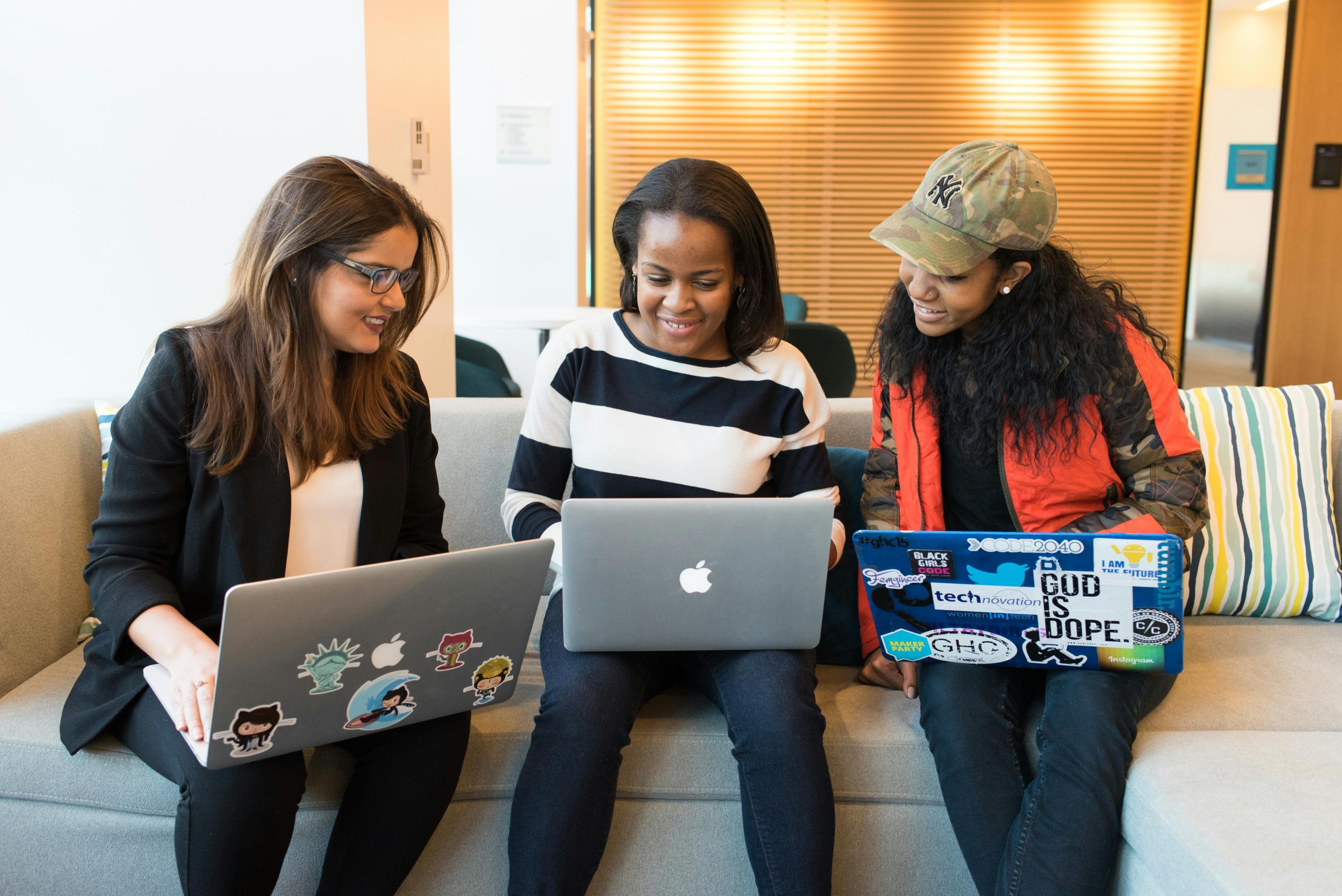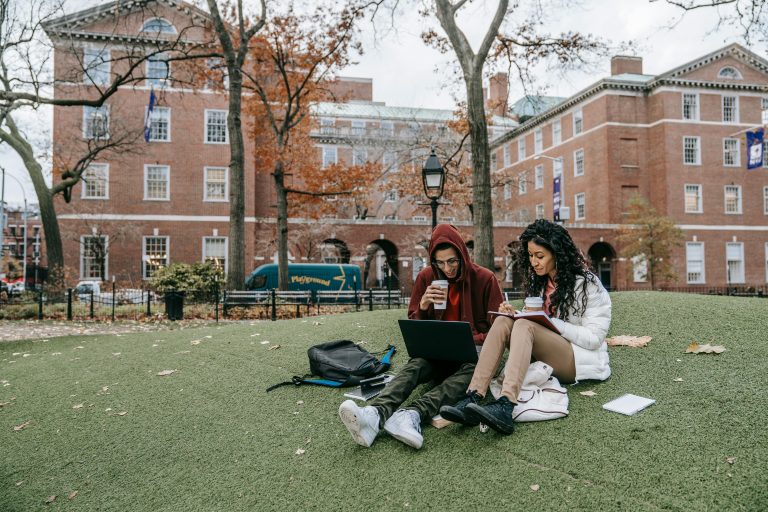In the quest for higher education, students around the world are often drawn to certain countries that have distinguished themselves as hubs of academic excellence. For Nigerian students, the United States has long been a beacon of hope, offering not just educational opportunities but also the promise of a better life—the fabled American Dream. But what exactly makes the U.S. such an attractive destination for Nigerian students? This article explores the intricate factors behind this educational migration, delving into the societal, cultural, and economic forces that drive thousands of Nigerian students to seek their futures in American institutions each year.
Historical Context of Nigerian Students in the U.S.
The educational migration of Nigerian students to the U.S. is not a recent phenomenon. It dates back to the post-colonial era, when many Nigerians sought advanced education abroad to contribute to nation-building. As Nigeria gained independence in 1960, there was a heightened demand for skilled professionals to help build the newly sovereign nation. Many Nigerians saw the U.S. as a place to gain the necessary knowledge and expertise.
However, in recent decades, the reasons for studying abroad have evolved. Today, factors such as the pursuit of high-quality education, better employment prospects, and a stable socio-economic environment are among the primary reasons Nigerian students flock to U.S. institutions.
The Promise of Academic Excellence
One of the most significant reasons Nigerian students choose to study in the U.S. is the country’s reputation for academic excellence. The U.S. is home to some of the world’s most prestigious universities, including Ivy League schools such as Harvard, Princeton, and Yale, as well as state universities like the University of California system and private institutions like Stanford University and MIT.
American universities are known for their cutting-edge research, access to resources, and state-of-the-art facilities. For many Nigerian students, attending a U.S. institution represents a golden opportunity to access a level of education that is often unattainable in Nigeria due to infrastructural limitations and underfunding of the higher education system. According to the Open Doors Report by the Institute of International Education, Nigeria consistently ranks among the top countries for international student enrollment in the U.S., reflecting the high demand for American degrees.
Additionally, U.S. universities offer a wide range of courses and majors, often with flexibility in terms of curricula. This allows Nigerian students to explore diverse fields of study, including those not traditionally available in Nigeria, such as specialized programs in artificial intelligence, biomedical engineering, and environmental sustainability. The interdisciplinary approach common in American higher education is also a major draw, allowing students to combine different fields of interest and gain a well-rounded education.
Global Recognition and Career Opportunities
An American degree holds considerable prestige worldwide, often opening doors to international career opportunities. Many Nigerian students view this global recognition as an essential factor in choosing to study in the U.S. In Nigeria, where the job market can be highly competitive and unemployment rates are relatively high, having a U.S. degree gives graduates an edge in securing employment.
In fields such as technology, engineering, and finance, U.S. education equips students with cutting-edge skills and knowledge that are highly valued by employers globally. Moreover, many American universities have strong ties with multinational corporations, providing students with internship opportunities and career placement programs that increase their chances of securing employment in top companies. These connections and networks are invaluable assets for Nigerian students looking to establish careers either in the U.S., Nigeria, or other parts of the world.
Furthermore, the U.S. offers pathways for international students to stay and work after graduation. Through programs like Optional Practical Training (OPT) and the H-1B visa, students can gain practical work experience in their field of study, increasing their chances of permanent residency and long-term employment in the U.S. This prospect of professional growth and financial stability is a significant motivator for Nigerian students.
The American Dream: More than Just Education
Beyond academic and career aspirations, the concept of the American Dream continues to play a crucial role in why Nigerian students choose the U.S. For many, studying in America is seen as a stepping stone to a better life, one characterized by personal freedom, economic prosperity, and opportunities for self-advancement. The U.S. is often perceived as a land where hard work and determination lead to success, regardless of one’s background.
This notion of upward mobility resonates strongly with Nigerian students, many of whom come from middle-class or upper-class families that prioritize education as a means to secure a prosperous future. The American Dream promises not only the chance to improve one’s financial standing but also the freedom to explore personal and intellectual growth in a way that is sometimes constrained in Nigeria due to political instability, societal norms, or limited resources.
Cultural Exchange and Exposure
Another reason Nigerian students are drawn to the U.S. is the opportunity for cultural exchange. The U.S. is one of the most culturally diverse countries in the world, and studying there allows Nigerian students to interact with people from various nationalities, ethnic backgrounds, and belief systems. This exposure to different perspectives enhances their personal development and broadens their worldview.
For many Nigerian students, studying in the U.S. offers an escape from the constraints of a rigid societal structure back home. Nigerian society is often characterized by strong expectations regarding gender roles, family obligations, and career paths. In contrast, the U.S. promotes individualism and self-expression, allowing students to explore their identities and make independent life choices.
The experience of living in a multicultural environment also prepares Nigerian students for a globalized world, where cross-cultural communication and collaboration are vital skills. Many U.S. universities actively encourage international students to participate in cultural activities, volunteer work, and student organizations, fostering a sense of community and inclusion.
Challenges Nigerian Students Face in the U.S.
While the allure of the American Dream and the promise of a better education are strong motivators, Nigerian students also face several challenges when studying in the U.S. These challenges include financial constraints, cultural adjustments, and visa hurdles.
Financial Burden
The cost of studying in the U.S. is one of the most significant obstacles for Nigerian students. Tuition fees at American universities can be exorbitant, and while scholarships and financial aid are available, they are highly competitive. For many Nigerian families, sending a child to study in the U.S. represents a major financial commitment, often requiring years of saving or taking out loans. In addition to tuition, students must also cover living expenses, health insurance, travel costs, and other miscellaneous fees.
However, despite these financial challenges, many Nigerian students and their families believe that the long-term benefits of a U.S. education outweigh the short-term sacrifices. They view the investment as a pathway to securing a bright future, either through career opportunities in the U.S. or by leveraging their American education to gain competitive advantages in Nigeria’s job market.
Cultural Adjustment
Adapting to a new culture can be both exciting and daunting for Nigerian students. While the U.S. offers a welcoming environment for international students, the cultural differences can sometimes be overwhelming. Nigerian students may experience culture shock as they navigate a new social structure, communication styles, and lifestyle expectations.
For example, the emphasis on individualism and self-reliance in American culture may contrast with the communal and family-oriented values common in Nigeria. Additionally, issues such as race relations, political ideologies, and social justice movements in the U.S. may present challenges for Nigerian students who come from different socio-political contexts.
To overcome these challenges, many Nigerian students join student associations and cultural groups that provide support and a sense of community. Organizations such as the Nigerian Student Association (NSA) at various universities serve as platforms for Nigerian students to connect, share experiences, and celebrate their cultural heritage while adjusting to life in the U.S.
Visa Hurdles
The U.S. student visa process can be complex and time-consuming, posing another challenge for Nigerian students. Obtaining an F-1 student visa requires careful planning, documentation, and often, multiple interviews at the U.S. Embassy. Students must demonstrate that they have sufficient financial resources to cover their education and living expenses and that they intend to return to Nigeria upon completing their studies.
In recent years, the political climate in the U.S. has also influenced visa policies, sometimes making it more difficult for international students to obtain visas or remain in the country after graduation. Despite these challenges, the desire to pursue the American Dream motivates many Nigerian students to persist through the visa application process.
A Multifaceted Decision
The allure of the American Dream, combined with the pursuit of academic excellence and career opportunities, continues to draw Nigerian students to the United States. For many, studying in the U.S. is not just about obtaining a degree but also about gaining access to a world of possibilities that extends far beyond the classroom. From personal growth and cultural exchange to the promise of a brighter future, the U.S. represents a gateway to success for thousands of Nigerian students every year.
However, this journey is not without its challenges. Financial burdens, cultural adjustments, and visa hurdles are part of the complex decision-making process that Nigerian students and their families must navigate. Yet, despite these obstacles, the U.S. remains a top choice for Nigerian students who seek not only a world-class education but also the chance to achieve their own version of the American Dream.
For many, the allure of the American Dream is more than just an ideal—it is a reality they are willing to work hard for, with the hope that the education and experiences they gain in the U.S. will transform their lives for the better, both personally and professionally.









Leave a Comment